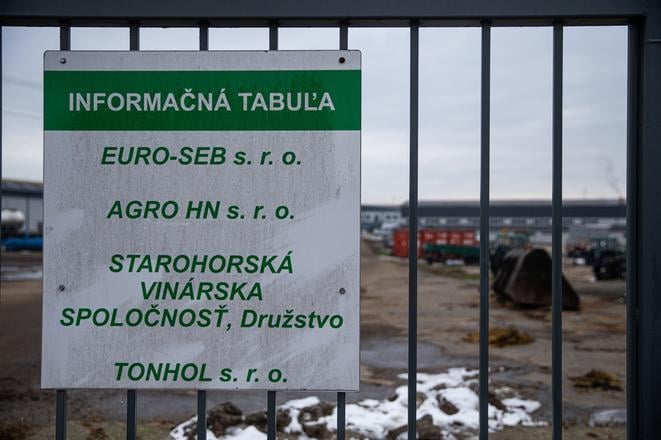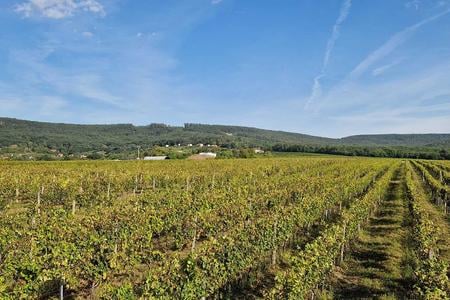In 2016, up to €5 million from the controversial Agricultural Paying Agency (PPA) tender was used to purchase trucks. Today, however, those vehicles no longer operate.
The companies that acquired them transferred the trucks to so-called “white horses” and are now selling off other assets bought with PPA subsidies. This article focuses primarily on the fate of three firms: Starohorská Vinárska Spoločnosť, Agro HN, and EURO-SEV. All evidence suggests they were under the control of Róbert Ďurica, an agricultural baron from the village of Babindol in the Nitra Region, from the very beginning.
Ďurica installed trusted associates in them to extract as much funding as possible from the PPA between 2014 and 2016.
In total, this amounted to tens of millions of euros, channelled into agricultural buildings, sham guesthouses resembling private “haciendas”, and the truck purchases.
The affair became known as the Babindol case. Together with the Dobytkár (Cattle Breeder) case, it came to symbolise the corrupt practices at the PPA during the second and third Smer governments.
The Sme daily has uncovered further circumstances linking the subsidies directly to Ďurica, showing these were purpose-built companies from the outset.
Close ties to Ďurica
In 2014, Starohorská Vinárska Spoločnosť, Agro HN, and EURO-SEV were taken over by people close to Róbert Ďurica.
His brother Adrián assumed control of Starohorská Vinárska Spoločnosť. Today, 100 percent of that company’s shares are officially held by Ďurica’s son, Jakub, who is just 20 years old.
EURO-SEV was initially taken over by Gabriela Benediková, an employee at Ďurica’s Agrospol Hontianske Nemce. In 2016, she was replaced by Lucia Kevelyová (later Molnárová), Ďurica’s neighbour in Babindol, who was only 22 at the time.
Agro HN was owned directly by Ďurica until 2015, when it was taken over by Dominik Kevely, believed to be Lucia Kevelyová’s brother.
“Each of them is an independent manager and runs the companies themselves, even though I owned one of the companies in the past. What we share is that I have known them since childhood – they are friends, acquaintances, and family,” Ďurica told Sme in 2016.
Between 2014 and 2016, the three firms proved remarkably successful at securing PPA subsidies, receiving more than €15 million. Other companies linked to Ďurica also benefited.
Ďurica previously told Sme that he knew Norbert Bödör – one of the main figures in the ongoing Dobytkár case – from hunting trips. He is also said to have met then-agriculture minister Ľubomír Jahnátek (Smer) during one such trip.
After securing subsidies, the companies’ revenues soared to millions of euros, and they employed dozens of staff.
The picture changed once the “sustainability” period of the projects expired – meaning the firms were no longer obliged to meet the original objectives.



